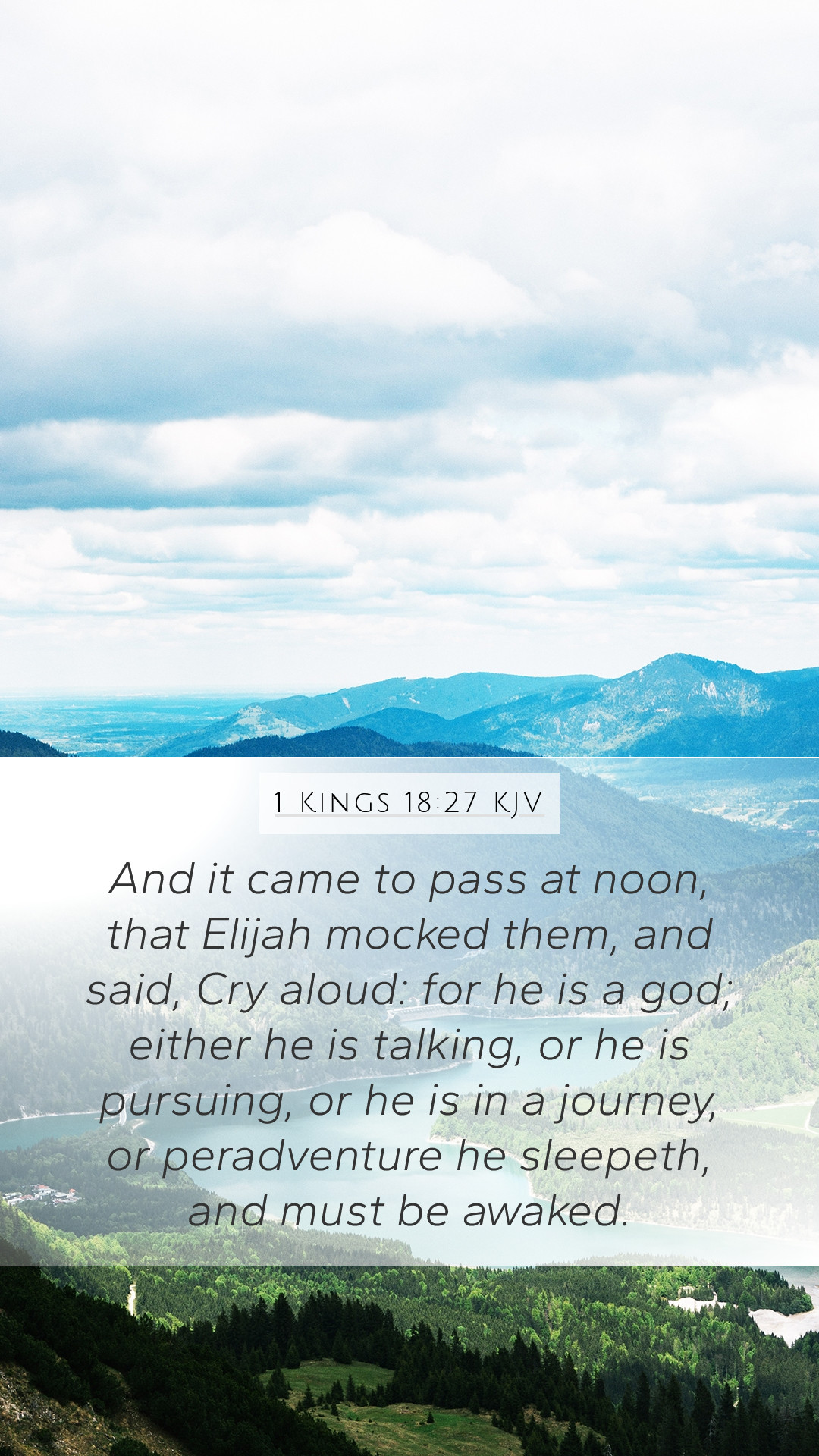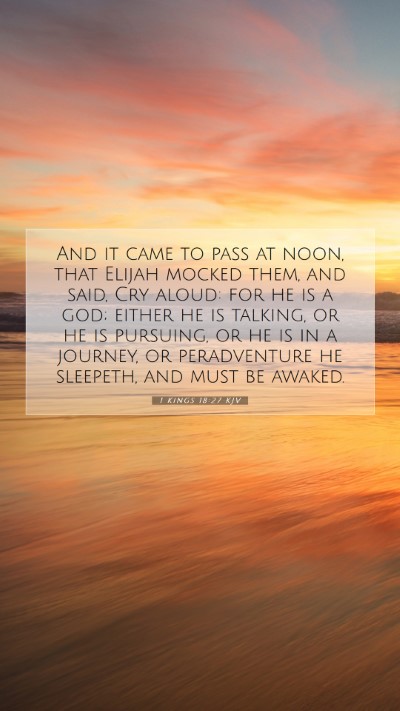Bible Verse Meaning: 1 Kings 18:27
Verse Text: "And it came to pass at noon, that Elijah mocked them, and said, Cry aloud; for he is a god: either he is talking, or he is pursuing, or he is in a journey, or peradventure he sleepeth, and must be awaked."
This verse captures one of the critical moments in the confrontation between the prophet Elijah and the prophets of Baal on Mount Carmel. Elijah's challenge to the prophets is not merely a display of mockery but serves to emphasize the impotence of Baal in contrast to the living God of Israel.
Understanding Scripture: Insights from Commentaries
-
Matthew Henry:
Henry emphasizes that Elijah's mocking serves to reveal the ridiculous nature of idol worship. The suggestion that Baal might be 'talking' or 'sleeping' suggests that the false god is absent and incapable of responding to the needs of his followers. This verse calls into question the power and authority of idols and challenges the believers to consider the living God who is attentive and ever-present.
-
Albert Barnes:
Barnes notes the irony in Elijah's sarcasm. His statements highlight that the prophets of Baal are calling on a god who is either too preoccupied, distant, or non-existent. This rhetorical device is a form of biblical exegesis that draws attention to the folly of relying on a deity who cannot act or respond. Elijah's mockery serves to strengthen the faith of God's people by showcasing the futility of their pagan competitors.
-
Adam Clarke:
Clarke further elaborates on the cultural context of this confrontation. He mentions that Elijah's taunt about Baal possibly being on a journey or sleeping reflects cultural beliefs surrounding prayer and deity activity. It suggests a contrast between the passive nature of pagan worship and the active role of the God of Israel, who is intimately involved in the affairs of His people.
Key Themes and Reflections
-
Impotence of Idols:
The verse underscores the ultimate impotence of false gods and the futility of human attempts to invoke their presence, while God, represented by Elijah, remains powerful and engaged.
-
Faith versus Doubt:
Elijah's challenge serves as a critical moment for the people's faith. It urges the Israelites to move away from doubt and recognize the sovereignty of the true God.
-
The Role of Prophets:
This interaction highlights the role of prophets in guiding God’s people, calling them back to true worship, and addressing the issues of their times.
Cross References
- 1 Kings 18:21: Elijah's challenge to the people about choosing between God and Baal.
- Psalms 115:4-8: A description of idols and their inability to act or respond.
- Jeremiah 10:14: The folly of relying on idols made by human hands.
Bible Study Insights
In studying 1 Kings 18:27, readers can gain a profound understanding of how to interpret Bible verses through a combination of historical context, cultural insights, and theological implications. This verse serves as a poignant reminder of the reality of idol worship and the comprehensive nature of God's sovereignty.
Application for Today
For believers today, this passage encourages self-reflection on the things we might inadvertently place our trust in rather than in God. It invites an examination of the 'idols' in contemporary society that distract from worshiping the true God, reinforcing the relevance of this ancient text in modern spiritual life.
Conclusion
The verse 1 Kings 18:27 serves as a powerful commentary on the nature of faith, the importance of recognizing the true God amidst the noise of competing beliefs, and the role of prophetic voices in guiding people toward truth. Embracing these insights enhances Bible verse understanding and enriches one's personal Bible study journey.


